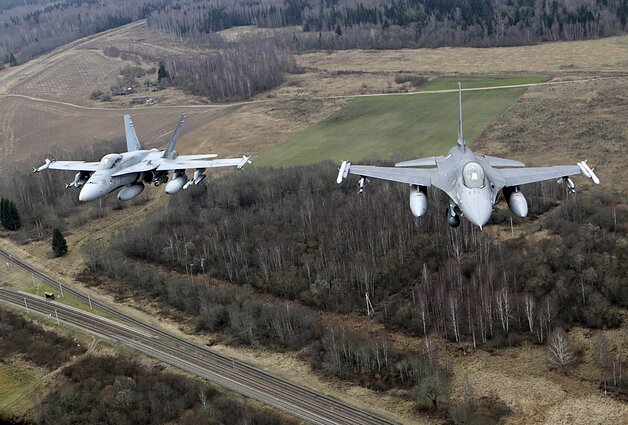
On January 26, the Lithuanian government approved a strategy to prepare the country’s population for armed and civil resistance in case of external threats or a military conflict.
In a press release, Defence Minister Arvydas Anušauskas announced that the main objective is “to build citizens’ resilience to prevent a potential aggressor, for example, from carrying out information attacks [or] cyber attacks”.
The document sets out four objectives: to strengthen the population’s resilience, to strengthen its civic will, and to build knowledge and skills for both armed and unarmed resistance. “This is a conceptual framework that lays out the guidelines, and concrete measures are a separate issue,” the minister said. He noted that the strategy focuses on the Riflemen’s Union (Šaulių Sąjunga), a civilian paramilitary organization. The strategy, drafted by the ministry, is yet to be approved by parliament.
Anušauskas claimed it was a coincidence that the strategy was submitted to the government for approval at a time of mounting tensions in the region. Russia has amassed more than 100,000 troops and military hardware near its border with Ukraine, including in Belarus, making the West increasingly concerned about a major military conflict in Europe. NATO allies announced on January 24 that they were putting forces on standby and sending additional ships and fighter jets to the Baltic states and Eastern Europe.
Lithuania updated its mobilization plans “several weeks ago,” Defence Minister Arvydas Anušauskas said. “This has been done,” he said, refusing to provide more information. “The details of these plans are not revealed, but the update has taken place,” he added.
Mobilization involves preparing the country’s institutions for defence, as well as the procedures for receiving allied support. The plans also lay out the procedures for conscription.
Mobilization may be partial or full, and is announced by the parliament after first being proposed by the president.
Tensions in the region have soared as Russia sends troops to Ukraine’s borders, including in Belarus. Lithuanian officials say they pose a direct threat to the country, with the United States readying to deploy additional forces to Eastern Europe in case of a further Russian attack against Ukraine.
The EU Observer reports that the US and NATO have formally rejected Russia’s demands for NATO to withdraw Western forces from eastern Europe and abandon Ukraine. NATO conveyed “written proposals” to Russia for new security arrangements in Europe, NATO secretary general Jens Stoltenberg said on January 26. The Western proposals included reopening Russia-NATO embassies in Brussels and Moscow and making more use of “military-to-military channels of communications” to reduce the risk of an accidental clash. They also included nuclear arms control and greater “transparency” on military exercises.
But they fell far short of Russian president Vladimir Putin’s demands, issued last December, and they underlined that Ukraine was free to seek NATO membership whether Putin liked it or not.
“This is about respecting the right for self-determination,” Stoltenberg said.
NATO was sending more troops, fighter jets, and warships to the east in reaction to Russia’s aggressive posture, Stoltenberg added, instead of withdrawing from the region, as Putin had demanded. “We are hoping for, and working for, a good solution, de-escalation, we are also prepared for the worst,” he said.
Meanwhile, the US version of the Western proposals were personally handed over by the US ambassador to Moscow, John Sullivan, at the Russian foreign ministry on January 26 for greater effect. The West has offered Russia “a serious diplomatic path forward, should Russia choose it,” said US secretary of state Antony Blinken. “There should be no doubt about our seriousness of purpose when it comes to diplomacy, and we’re acting with equal focus and force to bolster Ukraine’s defences and prepare a swift united response to further Russian aggression,” Blinken said.
BNS/LRT.lt/EU Observer


























